- Home
- Diana Palmer
Night Fever
Night Fever Read online
Dear Reader,
I wrote Night Fever back in 1993, when my memories of working in law offices were a little more recent than they are now. I had the opportunity to do revisions, but elected not to, since the law has changed so much in those twelve years.
I have a great respect for the law and its enforcement. My great-grandfather was a U.S. Marshal who was shot and killed in the line of duty. Two of my great-uncles were peace officers, and I have in-laws and friends today who work for various law enforcement agencies.
I am very proud of the justice system in my small north Georgia county, and I salute the judges and district attorneys and defense attorneys, the state, county and local police officers and sheriff’s personnel, the parole and probation officers, and the other law enforcement personnel who keep us all safe and dispense justice fairly.
In this book there is an African-American defense attorney who has a link to Atlanta. This character is my way of paying tribute to my favorite mayor, Maynard Jackson. When I was a very small-time young reporter, I wrote him a letter in which I expressed my admiration for his courage and sense of civic duty—and then as a postscript asked about his solid waste management plan, because I was doing a series of articles on the subject for my paper. He had the head of his department call me on the phone the day he received the letter. That’s the sort of person he was. It made me very proud that they gave his name to the airport. He was, like the other fine mayors of that great city, a very special sort of politician. The character in my book is pure fiction, but he salutes a person I greatly admired.
I hope you enjoy Night Fever.
Love,
Diana Palmer
NIGHT FEVER
DIANA PALMER
NIGHT FEVER
ISBN 978-1-5525-4380-1
NIGHT FEVER
Copyright © 1990 by Susan Kyle
All rights reserved. Except for use in any review, the reproduction or utilization of this work in whole or in part in any form by any electronic, mechanical or other means, now known or hereafter invented, including xerography, photocopying and recording, or in any information storage or retrieval system, is forbidden without the written permission of the publisher, Harlequin Enterprises Limited, 225 Duncan Mill Road, Don Mills, Ontario M3B 3K9, Canada.
All characters in this book have no existence outside the imagination of the author and have no relation whatsoever to anyone bearing the same name or names. They are not even distantly inspired by any individual known or unknown to the author, and all incidents are pure invention.
This edition published by arrangement with Harlequin Books S.A.
® and TM are trademarks of the publisher. Trademarks indicated with ® are registered in the United States Patent and Trademark Office, the Canadian Trade Marks Office and in other countries.
www.HQNBooks.com
Also by Diana Palmer
RENEGADE
TRUE COLORS
AFTER MIDNIGHT
LAWLESS
DIAMOND SPUR
DESPERADO
THE TEXAS RANGER
LORD OF THE DESERT
THE COWBOY AND THE LADY
MOST WANTED
FIT FOR A KING
PAPER ROSE
RAGE OF PASSION
ONCE IN PARIS
AFTER THE MUSIC
ROOMFUL OF ROSES
CHAMPAGNE GIRL
PASSION FLOWER
DIAMOND GIRL
FRIENDS AND LOVERS
CATTLEMAN’S CHOICE
LADY LOVE
THE RAWHIDE MAN
and coming in summer 2006
BEFORE SUNRISE
About the Author
New York Times bestselling author Diana Palmer is a former newspaper reporter with 16 years’ experience on both daily and weekly newspapers. She began selling romance novels in 1979 and currently writes for HQN Books (mainstream romances) and Silhouette Books (contemporary series romances).
Diana Palmer has over 40 million copies of her books in print, which have been translated and published around the world, and she has written over 100 books for Silhouette, MIRA and Harlequin Books. Her awards include 10 Waldenbooks national sales awards, four B. Dalton national sales awards, two Bookrak national sales awards, a Lifetime Achievement Award for series storytelling from Romantic Times Magazine, several Affaire de Coeur awards, and two regional RWA awards.
She has been married to her husband, James, since 1972. They have one son, who is in college studying to pursue a law enforcement career. Diana herself went back to college as a day student at the age of 45, inspired by her husband, who had quit a blue-collar manufacturing job to return to school and get his diploma in computer programming. Diana graduated summa cum laude from Piedmont College, Demorest, Georgia, in 1995 with a major in history and a double minor in archeology and Spanish. She was named to two honor societies (the Torch Club and Alpha Chi) and was named to the National Dean’s List.
In addition to her writing projects, she is currently working on her master’s degree in history at California State University. She hopes to specialize in Native American studies.
for Linda
Contents
ABOUT THE AUTHOR
CHAPTER ONE
CHAPTER TWO
CHAPTER THREE
CHAPTER FOUR
CHAPTER FIVE
CHAPTER SIX
CHAPTER SEVEN
CHAPTER EIGHT
CHAPTER NINE
CHAPTER TEN
CHAPTER ELEVEN
CHAPTER TWELVE
CHAPTER THIRTEEN
CHAPTER FOURTEEN
CHAPTER FIFTEEN
CHAPTER SIXTEEN
CHAPTER SEVENTEEN
CHAPTER EIGHTEEN
CHAPTER NINETEEN
CHAPTER TWENTY
CHAPTER TWENTY-ONE
CHAPTER TWENTY-TWO
COMING NEXT MONTH
CHAPTER ONE
1990. The elevator was crowded. Rebecca Cullen was trying to balance three cups in a box without spilling coffee all over the floor. Maybe if she learned to do this really well, she thought, she could join a circus and go on stage with her performance. The lids on the Styrofoam cups weren’t secure—as usual. The man who worked the counter at the small drugstore downstairs didn’t look twice at women like Rebecca, and who cared if coffee spilled all over a thin, nondescript woman in an out-of-style gray suit?
He probably figured her for Ms. Businesswoman, she thought—some rabid man-hater with a string of degrees after her name and a career in place of a husband and kids. Wouldn’t he be shocked to see her at home on Granddad’s farm, in cutoff jeans and a tank top in supper, which this wasn’t, with her mass of gold-streaked light brown hair down to her waist, and barefoot? This suit was pure camouflage.
Becky was a country girl, and the sole support of her retired grandfather and her two younger brothers. Their mother had died when she was sixteen and their father only stopped in to visit when he was broke and needed money. He’d moved to Alabama a couple of years back and none of them had heard from him since. Becky didn’t care if she never did again. She had a good job. In fact, the law firm’s recent relocation to Curry Station worked to her favor because her office in the industrial complex right outside Atlanta was now only a short drive from Granddad’s farm where they all lived. It was just like coming home, because her people had lived in Curry County for more than a hundred years.
She didn’t have a complaint about her job, except that she wished her bosses would remember to buy a new coffee urn before much longer. This several-times-daily trip down to the drugstore snack counter was getting to be a grind. There were three other secretaries, a receptionist, and two paralegals in the office, but they had seniority. Becky got to do the mule work. She
grimaced as she headed for the elevator, hoping she wouldn’t run into her nemesis on the way up to the sixth floor.
Her hazel eyes scanned the area quickly. She relaxed as soon as she was able to conclude that the towering figure was not waiting around the elevators. It wasn’t bad enough that he had a stare like black ice, or that he seemed to hate women in general and her in particular. But he also smoked those god-awful thin black cigars. In an elevator, they were pure hell. She wished somebody would tell him that there was a city ordinance against smoking in crowded public places. She meant to, but there always seemed to be a crowd around, and for all Becky’s toughness of spirit, she was shy in crowds. But one day it would be just her and that man, and she’d tell him how she felt about his extremely smelly cigars.
Her mind drifted as she waited for the slow-moving elevator to descend. She had worse problems than the cigar man, she reminded herself. Granddad was still recovering from the heart attack two months ago that had brought his career as a farmer to an abrupt halt. Now Becky was feeling the increased burden keenly. Unless she could learn to run the tractor and grow crops, in addition to working as a legal secretary six days a week, Granddad’s truck farm was destined to be a total loss. Her oldest brother, Clay, was a senior in high school, constantly in trouble these days, and no help at all around the house. Mack was in the fifth grade and failing math. He was a willing helper, but too small to do much. Becky herself was twenty-four, and she’d never had a social life at all. She’d just barely finished school when her mom had died and her father had taken off for parts unknown.
Becky allowed her thoughts to drift for a moment, wondering what her life could have been like. There might have been parties and nice clothes and men to take her on dates. She smiled at the thought of not having people depend on her.
“Excuse me,” a woman with an attaché case muttered, almost upending the coffee all over Becky.
She came out of her daydream in time to pile aboard the elevator, already crowded from its trip to the garage in the basement. She managed to wedge in between a woman who reeked of perfume and two men who were arguing, loudly, the benefits of two rival computers. It was a blinding relief when they, and almost everyone else, including the abundantly fragrant lady, got off on the third and fourth floors.
“Oh, God, I hate computers,” Becky sighed out loud as the elevator slowly began climbing to the sixth floor.
“So do I,” came a gruff, disgruntled voice from behind her.
She almost upset the coffee as she turned to see who had spoken. She had thought she was alone in the elevator. How she could have missed the man was the real question. She was only slightly above average height, but he had to be at least six foot two. It wasn’t just the height, though—it was the man’s build. He was muscular, with a physique that would have done a professional athlete proud. He had lean, beautiful, dark hands and big feet, and when he didn’t smell of cigar smoke, he wore the sexiest cologne Becky had ever smelled. But his masculine beauty ended at his face. She couldn’t remember ever having seen such a rough-looking man.
His face was all sharp angles and fierceness. He had thick black eyebrows and deep-set, narrow black eyes with a peculiar piercing quality. His nose was straight and elegant. He had a cleft chin—not terribly cleft, but noticeable. His face was kind of long and lean, with high cheekbones, and he had the kind of dark complexion that was natural and didn’t come from sitting in the sun. His mouth was wide and well-formed. She’d never seen it smile. He was in his midthirties, but there were some hard lines in that dark face, and he had a coldness of manner that chilled her. His very best quality was his voice. It was deep and clear and very resonant—the kind of voice that could caress or cut, depending on his mood—and it projected easily.
He was well-dressed, in an obviously expensive dark gray pin-striped suit, with a white cotton shirt and silk paisley tie beneath it. And she thought she had avoided him, for once. Maybe it was her karma.
“Oh. It’s you again,” she said with resignation. She pushed the jolted Styrofoam coffee cups back into place. “Do you by any chance own the elevator?” she asked. “I mean, every time I get on it, here you are, scowling and muttering. Don’t you ever smile?”
“When I find something to smile about, you’ll be the first to see it,” he said, bending his dark head to light a pungent cigar. He had the thickest, blackest, straightest hair she’d ever seen. He looked rather Italian, except for his high cheekbones, and the shape of his face.
“I hate cigar smoke,” she said, to break the silence.
“Then stop breathing until the doors open,” he replied carelessly.
“You are the rudest man I’ve ever met!” she exclaimed, turning back, infuriated, to watch the floors light up on the elevator panel.
“You haven’t met me,” he pointed out.
“Oh, lucky, lucky me,” she said.
There was a muffled sound from behind her. “Do you work in this building?”
“I don’t really work for a living.” She glanced at him over her shoulder with a venomous smile. “I’m the kept woman of one of the attorneys at Malcolm, Randers, Tyler, and Hague.”
His dark eyes slid down her trim figure, in its extremely conventional suit, to her small-heeled shoes, then back up again to her face, which had not a trace of makeup on it today. She had nice hazel eyes that matched her tawny hair, high cheekbones, a full mouth, and a straight nose, but her face was rather quiet. He guessed that she could look more attractive when she made the effort.
“He must have failing vision,” he said finally.
Becky’s eyes sparkled and narrowed as she got a firm grip on the cup holder and her own temper. Oh, the joy of dousing him with steaming black coffee, even if she had asked for it. But that might have unfortunate consequences. She needed her job, and he might know her bosses.
“He is not blind,” she made a half turn toward him and replied haughtily. “I make up for my lack of looks with a fantastic bedroom technique. First I smother him in honey,” she whispered conspiratorially, leaning forward, “and then I bring in specially trained ants…”
He lifted the cigar to his mouth and took a draw from it, blowing out a thick cloud of smoke. “I hope you take his clothes off first,” he said. “Honey is hard to get out of fabric. This is my floor.”
She stepped back to let him off, glaring at him. This wasn’t their first encounter. He’d been making terrible remarks and scoring off her since the first day she’d been in the building, and she was heartily sick of him—whoever he was.
“Have a nice day,” she drawled sweetly.
He didn’t even turn. “I was, until you came along.”
“Why don’t you take your cigar and stick it up your…?!”
After the doors closed off her last word, the car carried her unwillingly up to the fourteenth floor, where a man and woman were waiting to go down.
She noticed the floor number with a sigh. He was ruining her life. Why did he have to work in this building, when there was all of Atlanta for him to get lost in?
The elevator descended, and this time it opened on the sixth floor. Still fuming, she went into her bosses’ lavish office, glancing as she walked at Maggie and Jessica, the other two secretaries, hard at work on opposite sides of the office. Becky had a cubbyhole adjacent to Bob Malcolm’s. He was the junior partner, and her main boss.
Without knocking, she entered the big office to find Bob and two of his junior colleagues, Harley and Jarard, impatiently waiting for their coffee while Bob talked irritably on the phone.
“Just put it down anywhere, Becky, and thank you,” he said brusquely, with his hand over the receiver. He glanced at one of his colleagues. “Kilpatrick just walked in the door. How’s that for timing?”
Becky passed the cups of coffee quietly and received mumbled thank-yous from Harley and Jarard. Bob began to speak into the telephone again.
“Listen, Kilpatrick, all I want is a conference. I’ve got some new evidence
I want you to see.” Her boss banged his fist on the desk and his swarthy face reddened. “Dammit, man, do you have to be so inflexible?!” He sighed angrily, “All right, all right. I’ll be up in five minutes.” He slammed the receiver down. “My God, I’m praying he won’t run for reelection,” he said heavily. “This is only the second week I’ve had to deal with him, and I’m already sweating blood! Give me Dan Wade any day!”
Dan Wade was the Atlanta judicial circuit’s D.A. Becky knew he was a nice man. But here in Curry County, the district attorney was Rourke Kilpatrick. Perhaps, she thought optimistically, her employer had just gotten off on the wrong foot with Kilpatrick. He was probably every bit as nice as Dan Wade when you got to know him.
She started to point this out to Mr. Malcolm when Harley broke in. “Can you blame him?” Harley asked. “He’s had more death threats in the past month over this drug war than any president. He’s a hard man, and he won’t back down. I’ve had a couple of cases down here before, and I know Kilpatrick’s reputation. He can’t be bought. He’s a law-and-order man from the feet up.”
Bob sat back in his plush leather chair. “I get cold chills remembering how Kilpatrick once eviscerated a witness of mine on the stand. She actually had to be tranquilized after she testified.”
“Is Mr. Kilpatrick really that bad?” Becky asked with soft curiosity.
“Yes,” her boss replied. “You’ve never met him, have you? He’s working here in this building now, temporarily, while his office is being redecorated. It’s part of that courthouse renovation the county commission voted in. It’s pretty convenient for us to go up a floor rather than over to the courthouse. Of course, Kilpatrick hates it.”
“Kilpatrick hates most everything, including people.” Hague grinned. “They say that mean temperament comes from his heritage. He’s part Indian—Cherokee, to be exact. His mother came here to live with his father’s people when Kilpatrick’s father died. She died pretty soon afterward, so Kilpatrick became the ward of his uncle. The uncle was the head of one of the founding families of Curry Station and he literally forced Kilpatrick down local society’s throats. He was a federal judge,” he added, smiling. “I guess that’s where Kilpatrick learned his love of the law. Uncle Kilpatrick, you see, couldn’t be bought.”

 A Cattleman's Honor
A Cattleman's Honor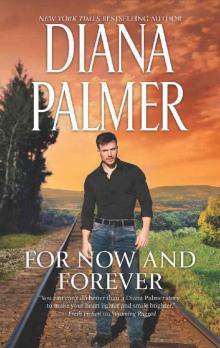 For Now and Forever
For Now and Forever Texas Proud and Circle of Gold
Texas Proud and Circle of Gold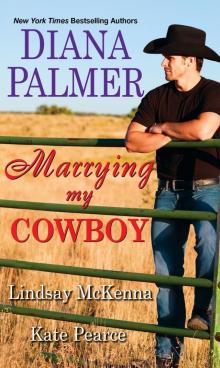 Marrying My Cowboy
Marrying My Cowboy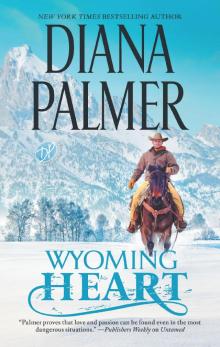 Wyoming Heart
Wyoming Heart Christmas Kisses with My Cowboy
Christmas Kisses with My Cowboy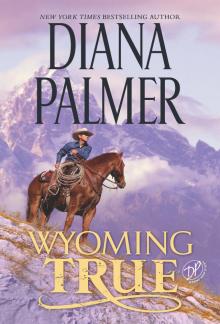 Wyoming True
Wyoming True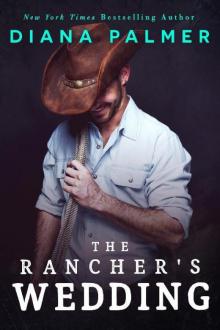 The Rancher's Wedding
The Rancher's Wedding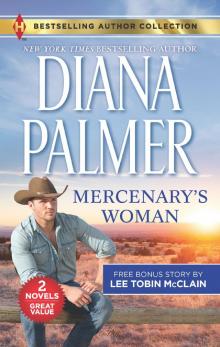 Mercenary's Woman ; Outlawed!
Mercenary's Woman ; Outlawed! Long, Tall Texans: Stanton ; Long, Tall Texans: Garon
Long, Tall Texans: Stanton ; Long, Tall Texans: Garon Lawless
Lawless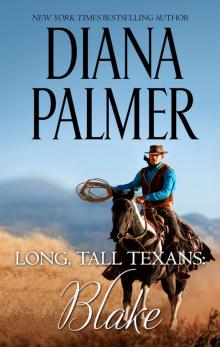 Blake
Blake Escapade
Escapade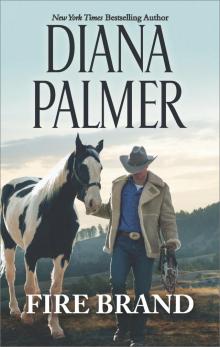 Fire Brand
Fire Brand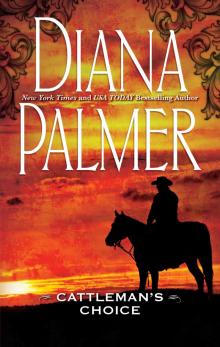 Cattleman's Choice
Cattleman's Choice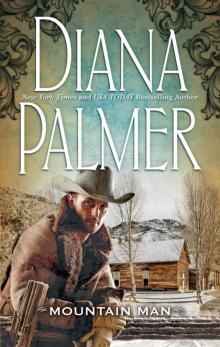 Mountain Man
Mountain Man Long, Tall and Tempted
Long, Tall and Tempted A Love Like This
A Love Like This Miss Greenhorn
Miss Greenhorn Magnolia
Magnolia Lord of the Desert
Lord of the Desert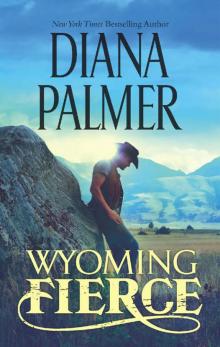 Wyoming Fierce
Wyoming Fierce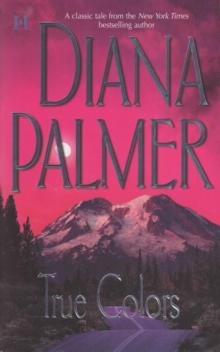 True Colors
True Colors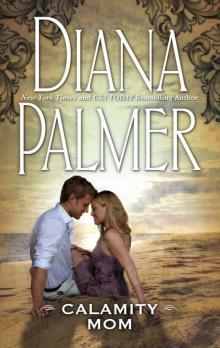 Calamity Mom
Calamity Mom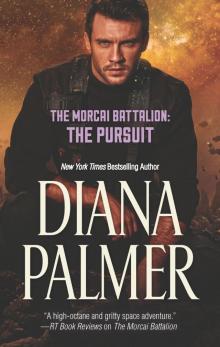 The Pursuit
The Pursuit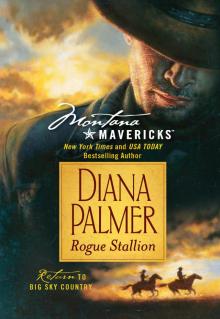 Rogue Stallion
Rogue Stallion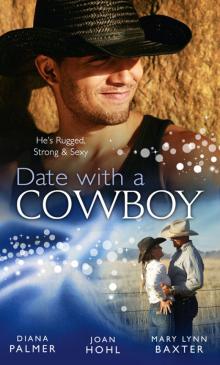 Date with a Cowboy
Date with a Cowboy Heart of Winter
Heart of Winter Friends and Lovers
Friends and Lovers Love on Trial
Love on Trial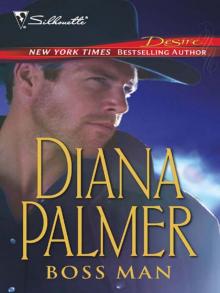 Boss Man
Boss Man Callaghan's Bride
Callaghan's Bride Before Sunrise
Before Sunrise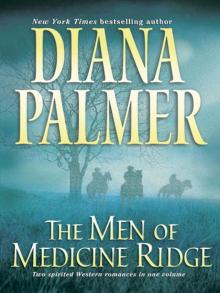 The Men of Medicine Ridge
The Men of Medicine Ridge Texas Proud
Texas Proud Wyoming Tough
Wyoming Tough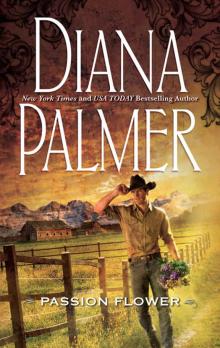 Passion Flower
Passion Flower Maggie's Dad
Maggie's Dad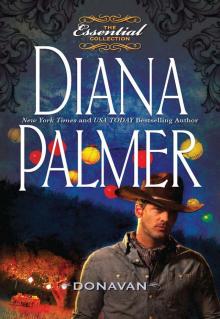 Donavan
Donavan The Rancher & Heart of Stone
The Rancher & Heart of Stone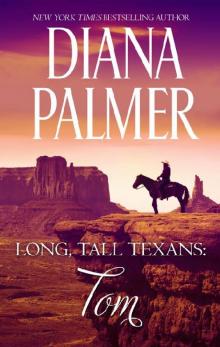 Long, Tall Texans: Tom
Long, Tall Texans: Tom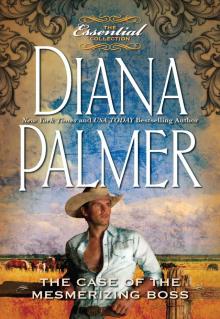 The Case of the Mesmerizing Boss
The Case of the Mesmerizing Boss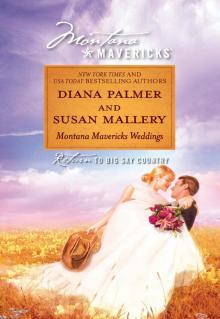 Montana Mavericks Weddings
Montana Mavericks Weddings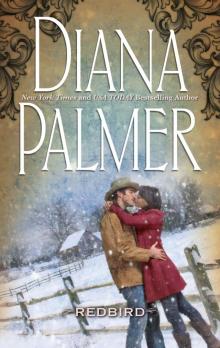 Redbird
Redbird Wyoming Strong
Wyoming Strong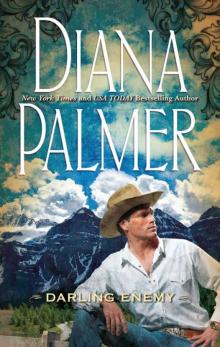 Darling Enemy
Darling Enemy Love by Proxy
Love by Proxy Coltrain's Proposal
Coltrain's Proposal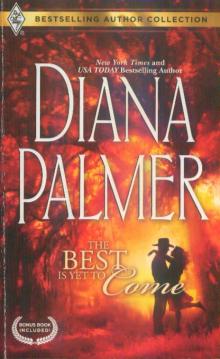 The Best Is Yet to Come & Maternity Bride
The Best Is Yet to Come & Maternity Bride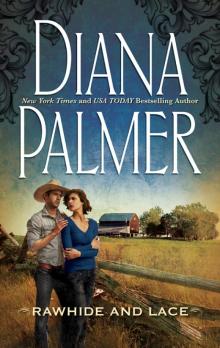 Rawhide and Lace
Rawhide and Lace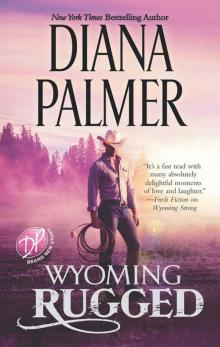 Wyoming Rugged
Wyoming Rugged Patient Nurse
Patient Nurse Undaunted
Undaunted Long Tall Texans Series Book 13 - Redbird
Long Tall Texans Series Book 13 - Redbird Outsider
Outsider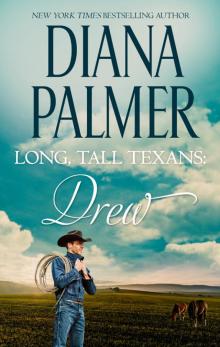 Long, Tall Texans: Drew
Long, Tall Texans: Drew Long, Tall Texans--Christopher
Long, Tall Texans--Christopher Merciless
Merciless A Match Made Under the Mistletoe
A Match Made Under the Mistletoe Evan
Evan Hunter
Hunter Now and Forever
Now and Forever Hard to Handle
Hard to Handle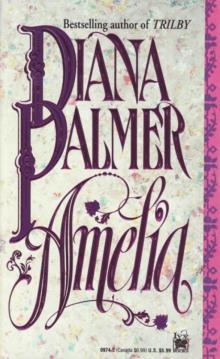 Amelia
Amelia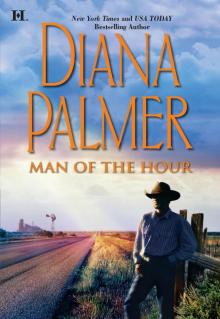 Man of the Hour
Man of the Hour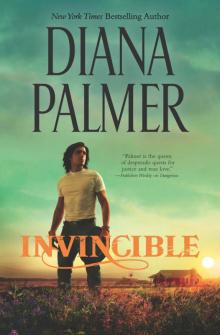 Invincible
Invincible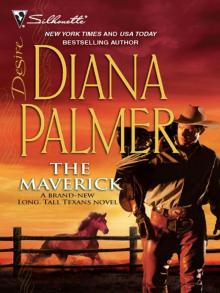 The Maverick
The Maverick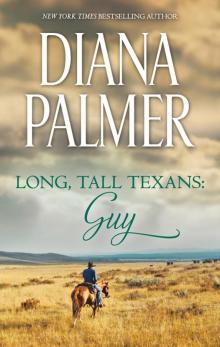 Long, Tall Texans--Guy
Long, Tall Texans--Guy Noelle
Noelle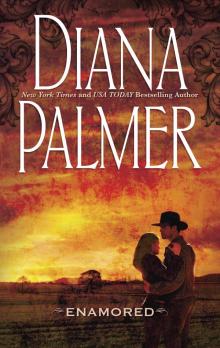 Enamored
Enamored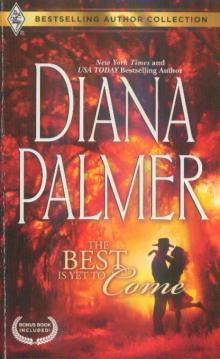 The Best Is Yet to Come
The Best Is Yet to Come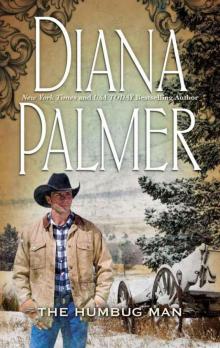 The Humbug Man
The Humbug Man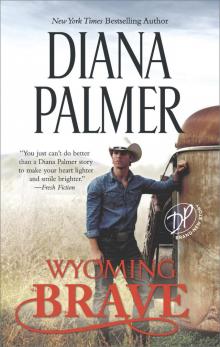 Wyoming Brave
Wyoming Brave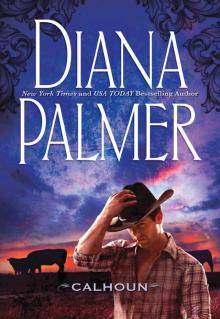 Calhoun
Calhoun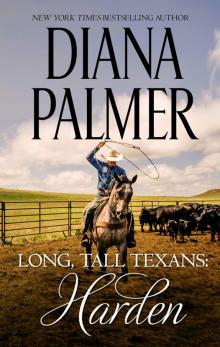 Long, Tall Texans--Harden
Long, Tall Texans--Harden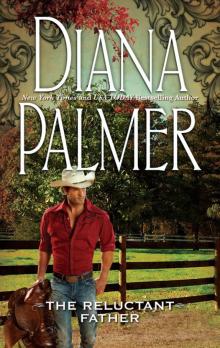 The Reluctant Father
The Reluctant Father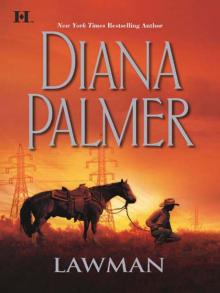 Lawman
Lawman Long, Tall Texans: Hank & Ultimate Cowboy ; Long, Tall Texans: Hank
Long, Tall Texans: Hank & Ultimate Cowboy ; Long, Tall Texans: Hank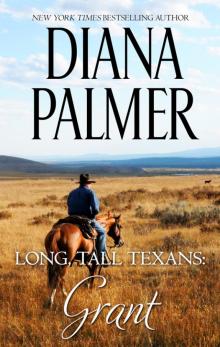 Grant
Grant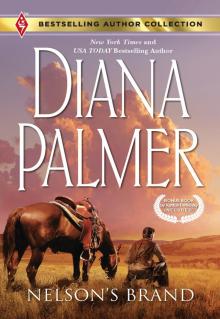 Nelson's Brand
Nelson's Brand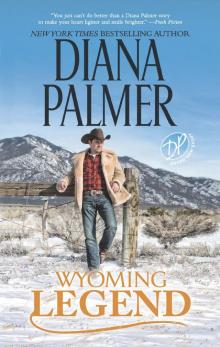 Wyoming Legend
Wyoming Legend Diamond Spur
Diamond Spur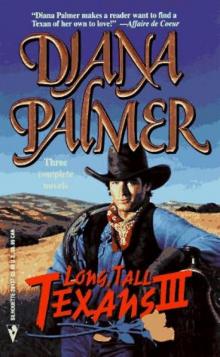 That Burke Man
That Burke Man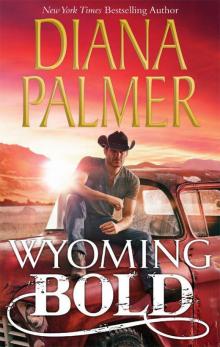 Wyoming Bold (Mills & Boon M&B)
Wyoming Bold (Mills & Boon M&B) Heartless
Heartless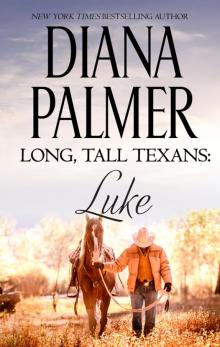 Long, Tall Texans--Luke
Long, Tall Texans--Luke To Have and to Hold
To Have and to Hold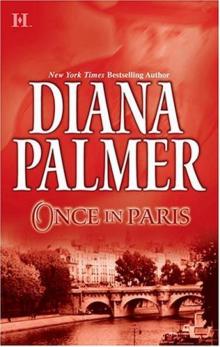 Once in Paris
Once in Paris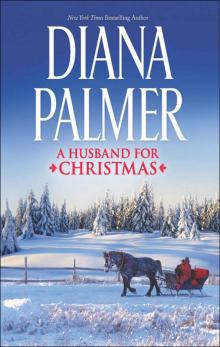 A Husband for Christmas: Snow KissesLionhearted
A Husband for Christmas: Snow KissesLionhearted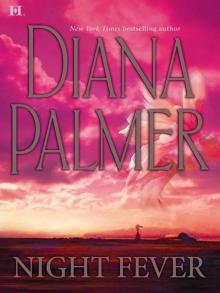 Night Fever
Night Fever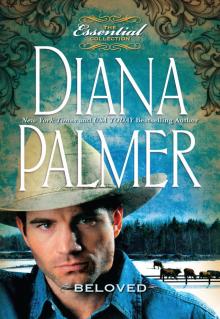 Beloved
Beloved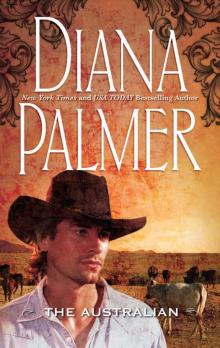 The Australian
The Australian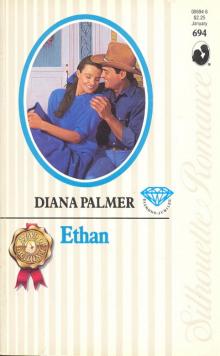 Ethan
Ethan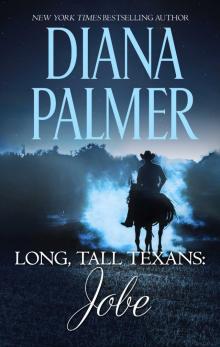 Long, Tall Texans: Jobe
Long, Tall Texans: Jobe Bound by Honor: Mercenary's WomanThe Winter Soldier
Bound by Honor: Mercenary's WomanThe Winter Soldier Tender Stranger
Tender Stranger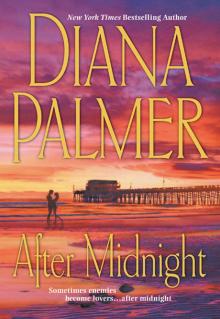 After Midnight
After Midnight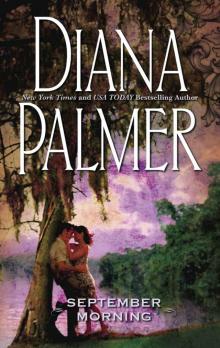 September Morning
September Morning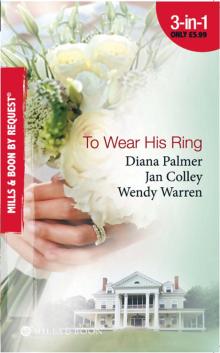 To Wear His Ring
To Wear His Ring Heartbreaker
Heartbreaker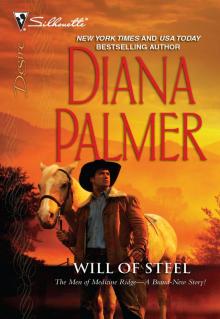 Will of Steel
Will of Steel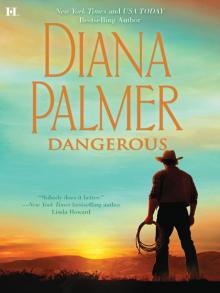 Dangerous
Dangerous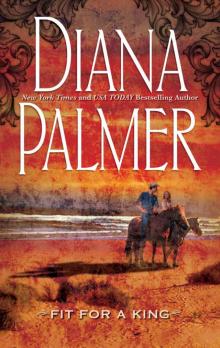 Fit for a King
Fit for a King Diamond in the Rough
Diamond in the Rough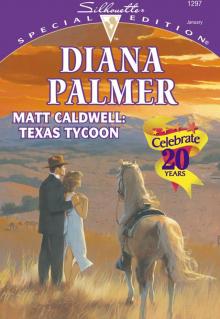 Matt Caldwell: Texas Tycoon
Matt Caldwell: Texas Tycoon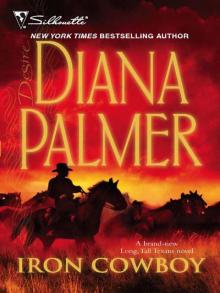 Iron Cowboy
Iron Cowboy Fire And Ice
Fire And Ice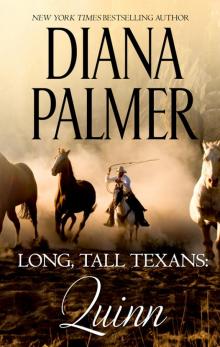 Long, Tall Texans--Quinn--A Single Dad Western Romance
Long, Tall Texans--Quinn--A Single Dad Western Romance Montana Mavericks, Books 1-4
Montana Mavericks, Books 1-4 Denim and Lace
Denim and Lace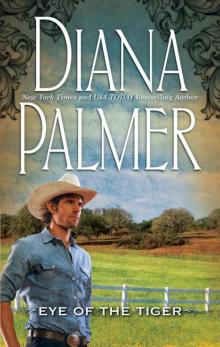 Eye of the Tiger
Eye of the Tiger The Princess Bride
The Princess Bride Long, Tall Texans: Rey ; Long, Tall Texans: Curtis ; A Man of Means ; Garden Cop
Long, Tall Texans: Rey ; Long, Tall Texans: Curtis ; A Man of Means ; Garden Cop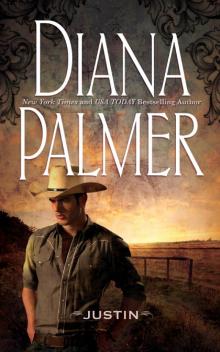 Justin
Justin Nora
Nora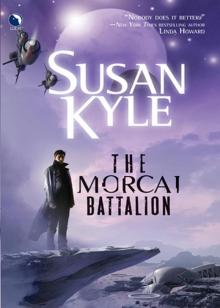 The Morcai Battalion
The Morcai Battalion Heart of Stone
Heart of Stone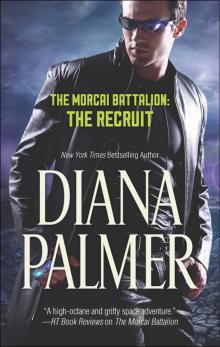 The Morcai Battalion: The Recruit
The Morcai Battalion: The Recruit To Love and Cherish
To Love and Cherish Invictus
Invictus Regan's Pride
Regan's Pride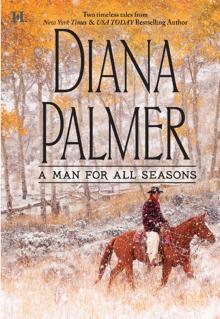 A Man for All Seasons
A Man for All Seasons Sweet Enemy
Sweet Enemy Desperado
Desperado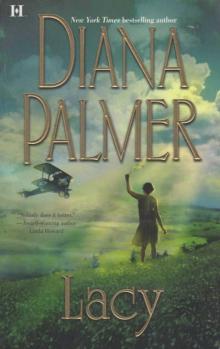 Lacy
Lacy The Winter Man
The Winter Man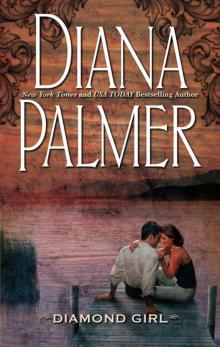 Diamond Girl
Diamond Girl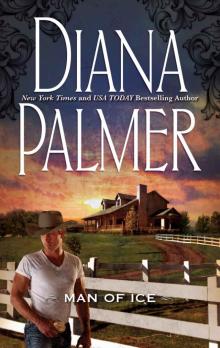 Man of Ice
Man of Ice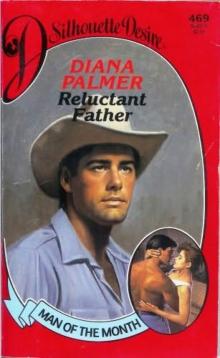 Reluctant Father
Reluctant Father Christmas with My Cowboy
Christmas with My Cowboy Love with a Long, Tall Texan
Love with a Long, Tall Texan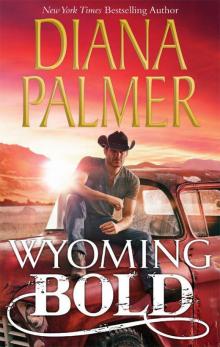 Wyoming Bold wm-3
Wyoming Bold wm-3 King's Ransom
King's Ransom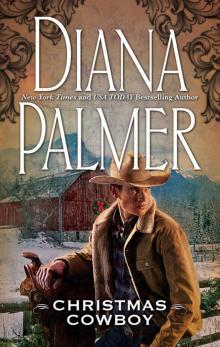 Christmas Cowboy
Christmas Cowboy Heart of Ice
Heart of Ice Fearless
Fearless Long, Tall Texans_Hank
Long, Tall Texans_Hank Unbridled
Unbridled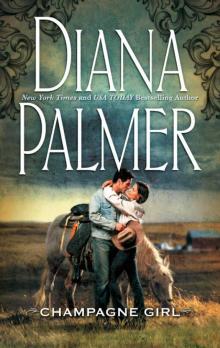 Champagne Girl
Champagne Girl The Greatest Gift
The Greatest Gift Storm Over the Lake
Storm Over the Lake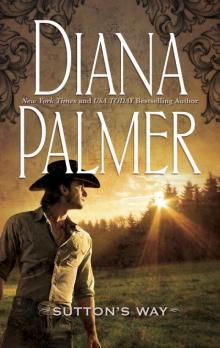 Sutton's Way
Sutton's Way Lionhearted
Lionhearted Renegade
Renegade Betrayed by Love
Betrayed by Love Dream's End
Dream's End All That Glitters
All That Glitters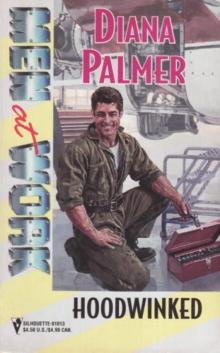 Hoodwinked
Hoodwinked Soldier of Fortune
Soldier of Fortune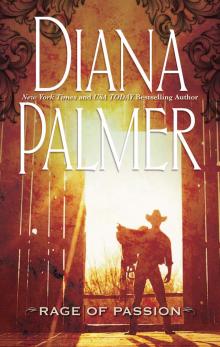 Rage of Passion
Rage of Passion Winter Roses
Winter Roses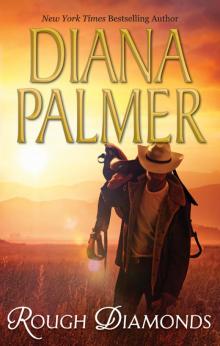 Rough Diamonds: Wyoming ToughDiamond in the Rough
Rough Diamonds: Wyoming ToughDiamond in the Rough Protector
Protector Emmett
Emmett True Blue
True Blue The Tender Stranger
The Tender Stranger Lone Star Winter
Lone Star Winter Man in Control
Man in Control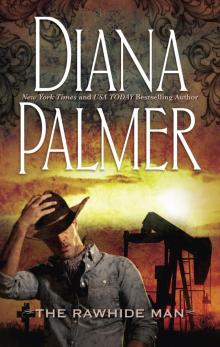 The Rawhide Man
The Rawhide Man Untamed
Untamed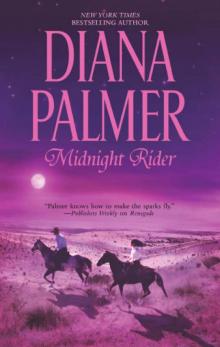 Midnight Rider
Midnight Rider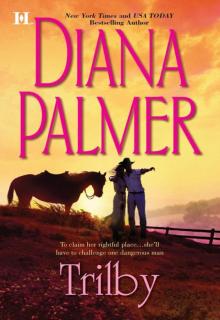 Trilby
Trilby A Long Tall Texan Summer
A Long Tall Texan Summer Tangled Destinies
Tangled Destinies LovePlay
LovePlay Blind Promises
Blind Promises Carrera's Bride
Carrera's Bride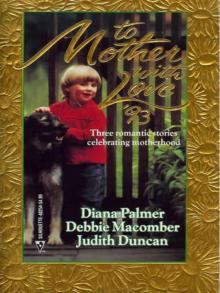 Calamity Mum
Calamity Mum Long, Tall Texan Legacy
Long, Tall Texan Legacy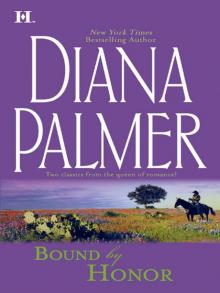 Bound by Honor
Bound by Honor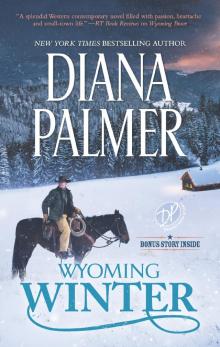 Wyoming Winter--A Small-Town Christmas Romance
Wyoming Winter--A Small-Town Christmas Romance Mystery Man
Mystery Man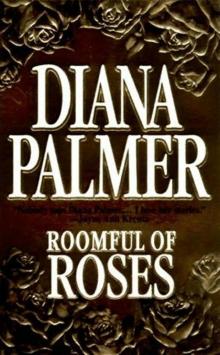 Roomful of Roses
Roomful of Roses Defender
Defender Bound by a Promise
Bound by a Promise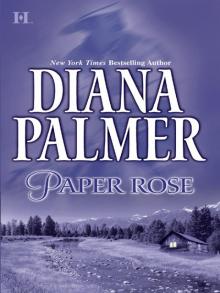 Paper Rose
Paper Rose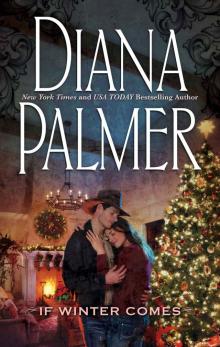 If Winter Comes
If Winter Comes Circle of Gold
Circle of Gold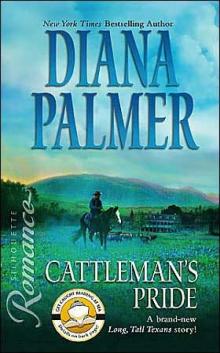 Cattleman's Pride
Cattleman's Pride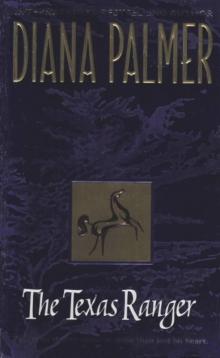 The Texas Ranger
The Texas Ranger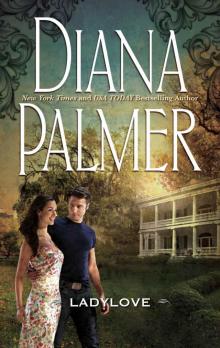 Lady Love
Lady Love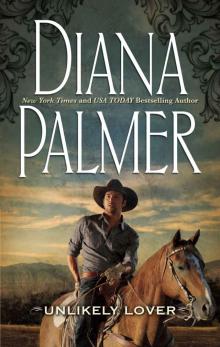 Unlikely Lover
Unlikely Lover A Man of Means
A Man of Means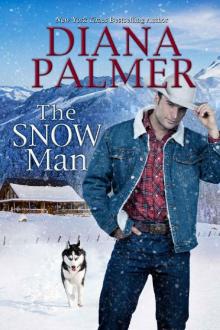 The Snow Man
The Snow Man The Case of the Missing Secretary
The Case of the Missing Secretary Harden
Harden Tough to Tame
Tough to Tame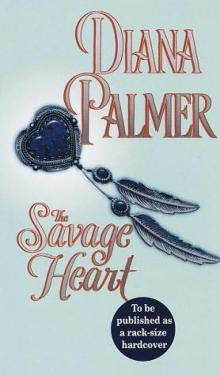 The Savage Heart
The Savage Heart